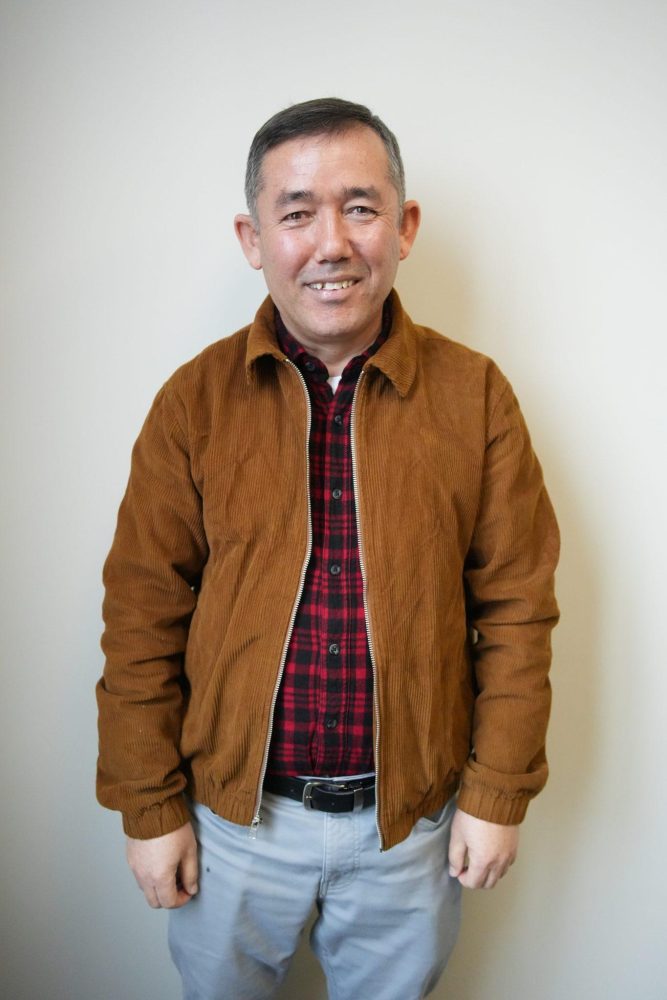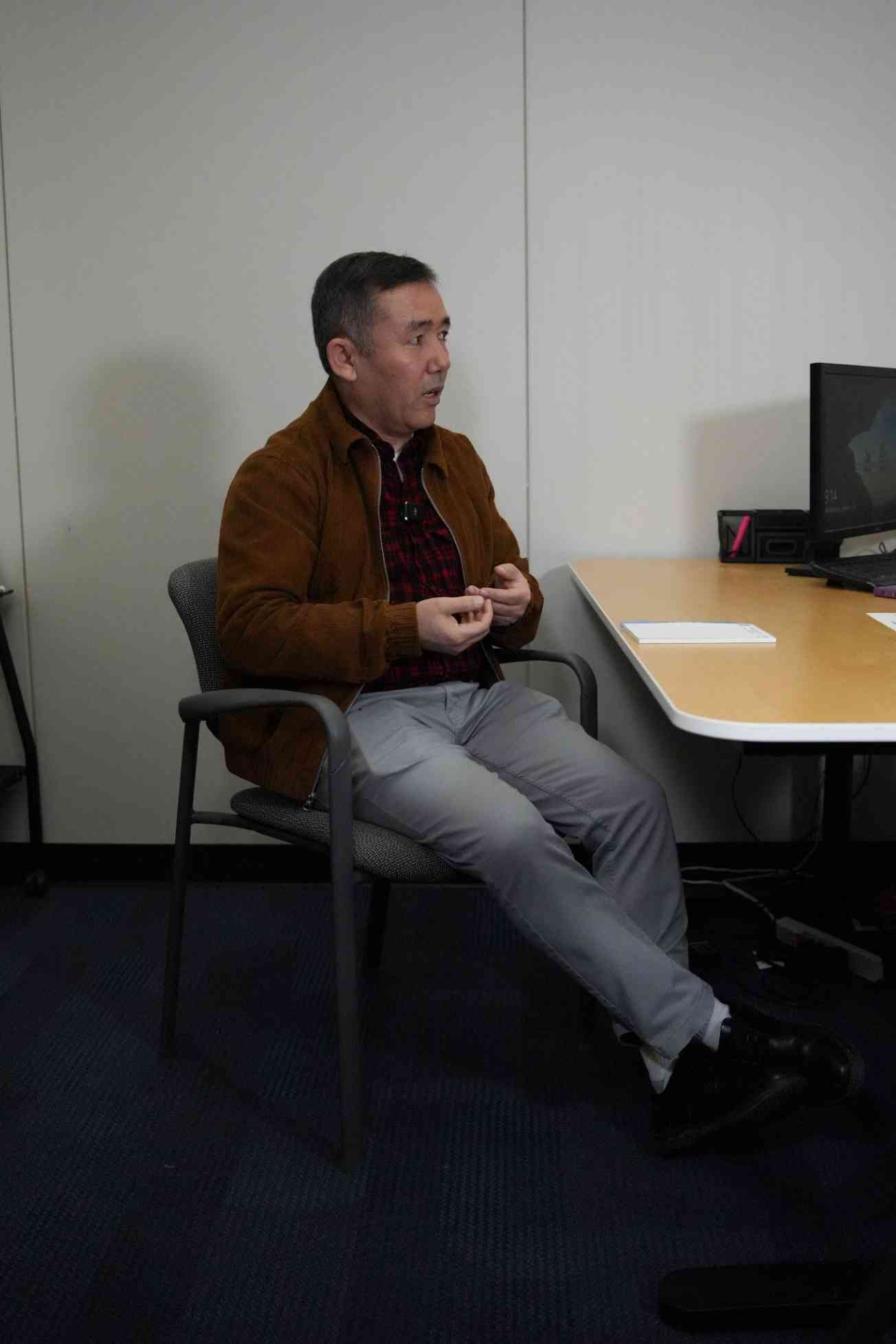We Are Thirsty For Opportunity
If you want a job, go out and look! Finding employment as a refugee.

My name is Muhammad. I was evacuated to the United States with my wife and four kids in August of 2021. We left with just an hour and a half notice, right as the Taliban took over.
There are many people named Muhammad who come from Afghanistan. Muhammad is like a prefix for many names. It is based on our religious beliefs after our prophet Muhammad. So Muhammad comes before your first and last name. Your first name is selected by your parents, and then your last name is your family name. I prefer to go by just Muhammad.
I grew up and lived in Afghanistan for 44 years before I came to the United States. Our future was not clear when we were there. Because of situations going on, we did not have a regular life, and I was not able to attend school regularly. However, I did complete high school and graduated in the year 2000. In 2006 I moved to Kubal, the capital of Afghanistan, and I didn’t have anything. I got married and brought my wife to Kubal. We lived in a rental house, and after some time, I got a job there. While I was working, I thought it would be good to improve my skills and gain more knowledge. I gained admission to a Higher Education Institute and got my one year diploma in Business Administration. Then I attended a private university for four years and studied law. I was working at the same time, and I bought a piece of land there. I built a home and bought a car and had some money saved in an account. We had to leave all of this behind, even my money, when we were evacuated.
I had started working for a U.S. company in March of 2016, called Dyne Corp International. I started there as a human resource officer, and then because of my education in law, I changed over to the legal field of the company, as a project manager of Resolute Support Mission (RSM) efforts. In that position, about 60% of my responsibility was providing interpretation, and the other 40% was acting as a liaison, or a court coordinator, between U.S. Mentors and Afghan National Security Officers.
After two years working at Dyne Corp International, I was eligible to apply for a Special Immigration Visa (SIV) for Afghan people. So I applied for that in April 2018. My application took a long, long time. In May 2021 I finally got the approval. But unfortunately, because of the Taliban, my visa was never completed. On August 15, 2021, the Taliban took power. And one day later, on August 16, I got an email from the US Embassy in Afghanistan that I had been selected for a visa interview. But it was too late. There was not enough time to attend the interview, and there was no embassy. Then, on the 18th of August, I got another email. I don’t know if it was from the US Embassy, but it was related to my Special Immigration Visa, and it said that I needed to leave my home and come to the airport as soon as I could. So we prepared for an hour and a half, and then we left our home to get to the airport.
Because I had started my SIV application and was already planning on coming to the United States, I had done research about the different states and where I wanted to go, and I had already chosen Kansas City. When we were evacuated, we were moved from place to place at different military bases in the U.S. and had to do screenings and paperwork for more than 40 days before we made it to Kansas City.
For the first two-and-a-half months in Kansas City, I was jobless.
I was thinking it would be difficult to find the kind of job I had in Afghanistan, as an interpreter or a project manager or a human resource officer. Because of the big difference between Afghanistan and here, I thought the work environment would be different too, so I was ready for any kind of job. My first job was in a factory sewing gymnastics clothes. Since that work was not based on my previous background and work experience, I continued looking for something different. I ended up getting a job with Catholic Charities as a Refugee Financial Empowerment Specialist, and after about a year I got promoted to a Refugee Asset Development Manager.

At Catholic Charities we have two different programs: the first is RFF (Refugee Financial Freedom), where we provide financial coaching and training with opening a bank account, learning about and improving credit, money management, how to avoid scams, etc; the other program is IDA (Individual Development Accounts) which helps refugees set up a savings account and then matches their earned money (up to $3000 for individuals and $6000 for families), to help them get self sufficient.
A challenge we face is that a lot of refugees have the mentality that they will not be able to find their dream job here.
Even though they have good skills back in Afghanistan, they think it is too different here in the United States, and so they just work in warehouses and grocery stores and at Walmart. But there are lots of opportunities where they can fill their capacities if they look. They should explore, they should search, they should go out and look! When I was in Afghanistan, one of my supervisors said that the United States is the state of opportunity, especially for those who look for that opportunity. But if refugees don’t look for the opportunities, the opportunities will not come to them.
I feel that Kansas City is my home. My family is safe. I’m not worried about any security issues. Schools are good and I have a good job. I can support my family. That is what I want. I am very happy that I can support my family and that my children can make their future as good as they want. I’m doing my best to work on my future as much as I can also. We have a word or expression that we say—that we are thirsty for opportunity. We did not have this opportunity back in our home country, but now we are here and have lots of opportunities. I feel as if it’s my responsibility to look for that, to go, to respond, and to get every opportunity I can.
Our team members obtain informed consent from each individual before an interview takes place. Individuals dictate where their stories may be shared and what personal information they wish to keep private. In situations where the individual is at risk and/or wishes to remain anonymous, alias names are used and other identifying information is removed from interviews immediately after they are received by TSOS. We have also committed not to use refugee images or stories for fundraising purposes without explicit permission. Our top priority is to protect and honor the wishes of our interview subjects.